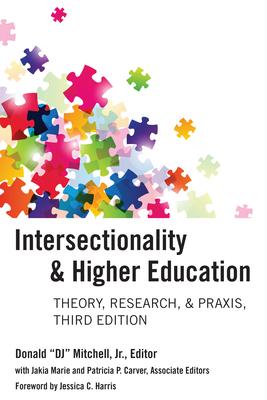Intersectionality is a term coined by Kimberl Crenshaw in 1989. Crenshaw, a scholar of law, critical race theory, and Black feminist legal theory, uses intersectionality to explain the experiences of Black women who--because of the intersection of their race, gender, and class--are exposed to exponential and interlocking forms of marginalization and oppression, often rendering them invisible. The third edition of Intersectionality & Higher Education: Theory, Research, & Praxis further documents and expands upon Crenshaw's articulation of intersectionality within the context of higher education. The text includes (a) theoretical and conceptual chapters on intersectionality; (b) empirical research and research-based chapters using intersectionality as a framework; and (c) chapters focusing on intersectional practices, all within higher education settings. The volume may prove beneficial for graduate programs in ethnic studies, higher education, sociology, student affairs, women and gender studies, and programs alike.
This is a vibrant and rigorous collection of essays that think about intersectionality in practice and as a practice. The essays think about intersectionality in the context of higher education, and imagine what it might mean to take seriously intersectionality's call to enact practices of inclusion and equity.
--Jennifer Nash, Jean Fox O'Barr Professor of Gender, Sexuality, and Feminist Studies, Duke University
In times like these when the freedom to learn about truth and justice is under assault, this collection of essays is more important than ever. It illuminates the essential building blocks of intersectionality with care and insight, extends intersectionality into new and urgent territory given the changing landscape of higher education in the United States, and provides successful examples of how to put intersectionality into practice throughout the university.
--Leslie McCall, Presidential Professor of Sociology and Political Science, The Graduate Center, City University of New York
